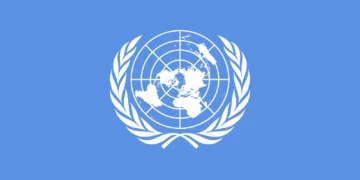A rare example of honesty and personal integrity was demonstrated recently in Abia State, when a commercial tricycle operator, popularly called keke, returned to its rightful owner, millions of naira forgotten in his vehicle by a female passenger.
According to reports, the tricycle rider, Lucky Okoro, a native of Umuomei in Obingwa Local Government Area of Abia State, had taken a Cameroonian female passenger to the famous Ariaria Market in Abia and dropped her off. On returning to the vehicle park, he discovered the woman had left her bag containing ₦4 million in his tricycle. He immediately began searching for her.
Giving account of what transpired, he claimed he first rode back to the park where he had picked her up, and when he could not find her, he rode back to the place where she had alighted. In a dramatic scene that has since gone viral, he saw the distraught woman in a state of hysteria, threatening to kill herself. He consoled her and returned the bag of money to her. He did not stop there: he went further to help her book a hotel where she could recover from the trauma of the incident before he left.
Expectedly, the Cameroonian woman’s joy was effusive. Strangely—yet expectedly—the reaction of bystanders was mixed. While the crowd that had gathered around the wailing woman must have heaved a sigh of relief that she had been pulled out of her sorrow and expressed gratitude to the honest young man, Okoro’s fellow tricycle operators reacted in a diametrically opposite manner. They chided him for being foolish to return such a large sum of money that could have made life easier for him. They called him mugu, a derogatory term in Nigerian slang that implies naivety or stupidity for choosing honesty over personal gain. That such a noble act could be viewed with cynicism is troubling—but not surprising. In a society where corruption has seeped into both public and private sectors, acts of honesty can often seem rare or even foolish.
This is precisely why Okoro’s example must be uplifted, celebrated, and replicated. It was a powerful public statement about what is possible when personal integrity is placed above material temptation.
Reacting to his critics, Okoro said he was not foolish but had simply done what was right—and that he was pleased that God was taking glory from his action. Such an unpretentious, selfless young man at heart!
Okoro’s action is no mean feat in a country like ours, where the values of truth, honesty, probity, and personal integrity are in short supply. Added to this is the fact that, in a country that has held the ignoble title of poverty capital of the world, Okoro is probably among the roughly 66 per cent of Nigerians living in multidimensional poverty (according to the Bureau of Statistics report), whose condition has only worsened under the present administration’s harsh economic policies.
Let’s face it: most people would have ‘stolen’ the money and thanked their stars for a lucky break. This is symptomatic of a country in which the masses are inundated daily with reports of how their leaders—in politics, governance, business and faith—have diverted the people’s patrimony to their private estates. Among them are lawmakers, law enforcement officers, and judges whose job it is to punish dishonest persons and all those who break the law. A transparency and accountability report identified the judiciary and the police among the five most corrupt institutions in the country.
Another salient point in Okoro’s exemplary action is that honesty pays—not only in the hereafter but also in the here and now. Abia State Governor, Alex Otti, reportedly rewarded Okoro with ₦1.4 million for his honesty. Okoro is not the only one to have received a reward for exemplary acts of integrity. Last year, this newspaper selected another keke driver, Awwalu Salisu, who returned ₦15 million left in his tricycle by a Chadian businessman in 2023 in Kano, for the award of Young Person of the Year 2024. During his investiture, the young man received scholarship awards up to PhD level worth over ₦250 million from both Mr Peter Obi and the Niger State Government.
Beyond the immediate reward, people like Okoro and Salisu should be held up as embodiments of the desired—but scarce—national values. Their acts should inspire systemic change. Government institutions, religious bodies, community leaders, and media platforms should collaborate to promote civic virtues like honesty, transparency, and accountability. Campaigns should highlight not only the costs of corruption but also the rewards of righteousness.
Their examples should be shared among the youth to disabuse them of the negative narratives propagated by the older generation, whose dishonesty has practically crippled all institutions in Nigeria. Their examples are especially significant in a country where many frustrated youths have taken to crimes like advance-fee fraud, blood money rituals (Yahoo crimes), cultism, kidnapping, vandalism, banditry, and terrorism, among others.
As a newspaper, we suggest that people like Okoro, Salisu, and others should be identified for national honours, rather than the many questionable characters who are invested with such accolades when they least deserve them.





